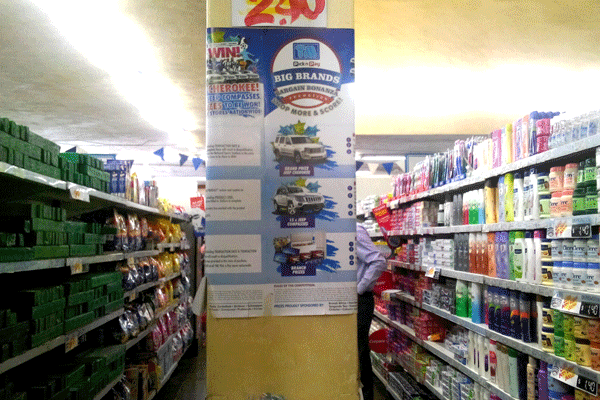
BY BUSINESS REPORTER
CONSUMER rights watchdog, Poverty Reduction Forum Trust (PRFT), says during the month of July, an average family of six required at least $1 684,45 to sufficiently source food and non-food items.
This comes as the Consumer Council of Zimbabwe has, for the past few months, failed to release its monthly cost of living basket that has been ballooning since January.
PRFT is a civil society organisation focused on policies that alleviate the poor through conducting research on poverty-related issues and engaging with policymakers.
“In the month of July, 2019, a family of six in Harare needed $1 684,45 to have access to a sufficient quantity and quality food and non-food items. Accessing the basic needs at this cost has become a nightmare, given that the salaries for both the public and private sectors have remained frozen, with civil servants earning an average income of $500 per month. Prices of most goods and services are being pegged at the parallel market rate (currently fluctuating US$1: ZW$11 on average) yet salaries have not been reviewed to match the prices level,” PRFT said in a statement.
“There is no reprieve for citizens as fuel prices are continuously being increased due to the continued weakening of the Zimdollar against the United States dollar and other foreign currencies. The increase in excise duty on fuel imports, which was recently announced in the mid-term budget review statement made by Finance minister Mthuli Ncube, partially contributed to the increase in fuel prices.
“The increase in excise duty is operationalised by Statutory Instrument 161 of 2019, Customs and Excise (Tariff) (Amendment) notice 10, 2019. Fuel price increases continue to push-up costs of transporting goods and this is ultimately increasing the prices of basic goods and services.”
According to PRFT, despite having introduced a local currency, Zimbabwe is still facing a two-tier pricing model.
- Chamisa under fire over US$120K donation
- Mavhunga puts DeMbare into Chibuku quarterfinals
- Pension funds bet on Cabora Bassa oilfields
- Councils defy govt fire tender directive
Keep Reading
The pricing model includes prices of goods pegged in electronic money and hard currency, which are bond notes and coins.
In that regard, evidence gathered by PRFT during its price tracking in Harare established that tuckshops prefer selling basic commodities at bond cash prices and charge an extra 10% to 15% on average to a consumer who buys with electronic money (EcoCash).
This situation is compounded by the fact that the central bank has not yet increased the supply of cash in banks, though they promised to do so following the re-introduction of the Zimdollar.
“The daily maximum withdrawal for banks is still pegged at $100 for individuals and $300 for institutions. PRFT’s overall observation is that the introduction of the local currency through the SI 142 of 2019 has not removed the two-tier pricing system and the citizens have continued to be short changed,” PRFT said.
“The Poverty Reduction Forum Trust continues to advocate for government to come up with policies which ensure that all citizens can afford to live dignified lifestyles. The economic hardships are increasingly being characterised by an erosion of social norms and values.”











